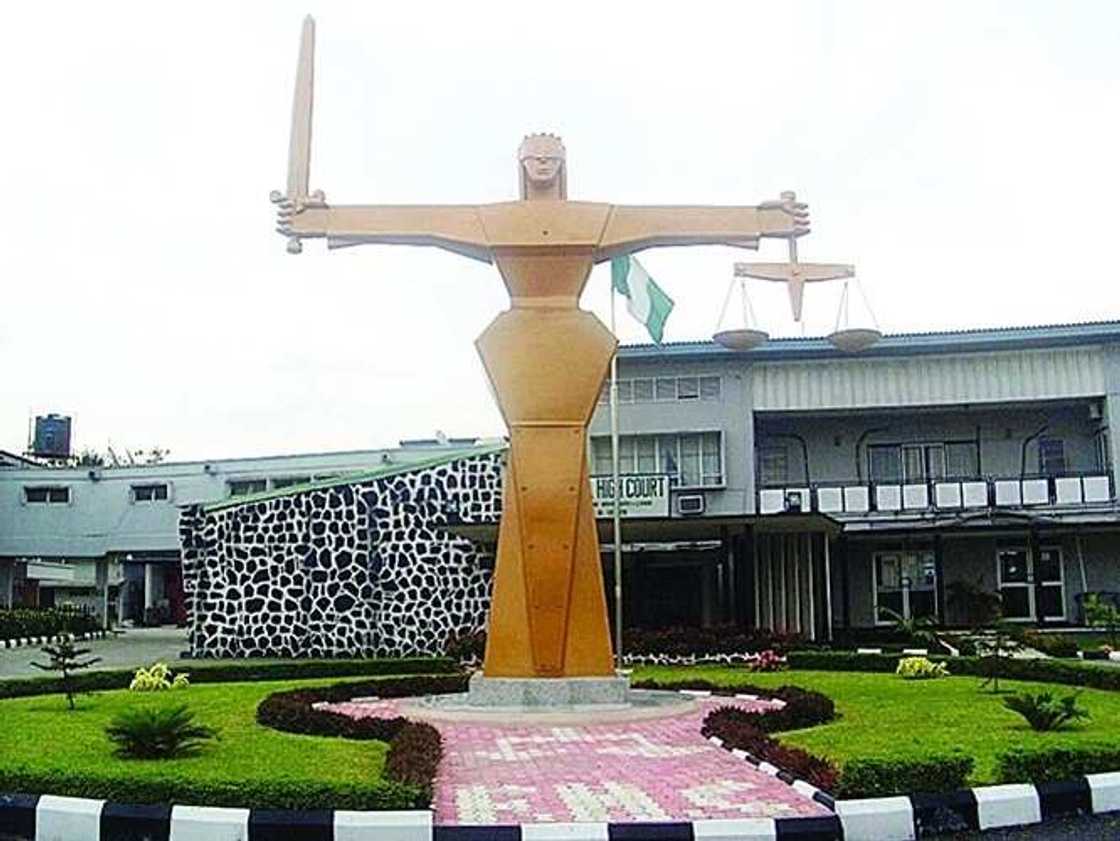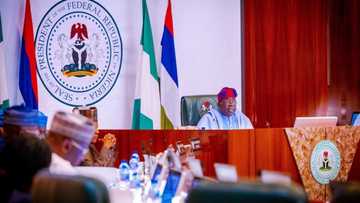SERAP Drags CBN to Court, Seeks an Order of Mandamus' Over Customer's Social Media Account Request
- As promised, the Socio-Economic Rights and Accountability Project (SERAP) has filed a lawsuit against the Central Bank of Nigeria (CBN)
- The lawsuit is against the CBN, asking banks and other financial institutions to collect customers' social media account details
- The civil organization had earlier requested that the CBN withdraw its order to banks or face legal proceedings
Socio-Economic Rights and Accountability Project (SERAP) has dragged the Central Bank of Nigeria (CBN) to court over recent instructions to banks to request customers' social media accounts for the purpose of identification.
The apex bank gave the instruction to banks and other financial institutions in a circular dated June 20, 2023, titled Central Bank of Nigeria (Customer Due Diligence) Regulations.

Source: UGC
Legit.ng had reported that the social media order was part of other identification requests banks are to adhere to help combat Money laundering, financing of terrorism, and countering proliferation financing of weapons.

Read also
Nigeria's excess crude account drops from $2bn to below $500k, Lawmakers demand explanation from CBN
SERAP drags CBN to court
SERAP in a suit number FHC/L/CS/1410/2023 filed on Friday, July 22, 2023, asked the Federal High Court in Lagos to issue an order of mandamus on social media accounts describing it as intrusive.
PAY ATTENTION: Share your outstanding story with our editors! Please reach us through info@corp.legit.ng!
An order of mandamus compels a government official, public authority, corporation, or lower court to perform a specific act that it is legally obligated to do.
The suit filed on behalf of SERAP by its lawyers, Kolawole Oluwadare and Ms. Blessing Ogwuche, read in part:
"An order of mandamus to direct and compel the Central Bank of Nigeria to withdraw its directive dated 20th June, 2023 to banks and other financial institutions to obtain information from customers’ social media handles.
“Obtaining information on customers’ social media handles or addresses as means of identification is more intrusive than necessary."
SERAP in its suit argued that should banks and financial institutions be allowed to obtain customers' social media details it would inhibit Nigerians from freely exercising their human rights online.
The Civil organisation added that such information may also be misused for political and other unlawful purposes.
The suit continues:
“The CBN Regulations and directive to banks and other financial institutions would impermissibly restrict the constitutional and international rights to freedom of expression, privacy and victims’ right to justice and effective remedies.
“Requiring social media handles or addresses of customers as a means of identification would have a disproportionate chilling effect on the effective enjoyment by Nigerians of their rights to freedom of expression and privacy online.”
“The requirement of necessity implies an assessment of the proportionality of the grounds, with the aim of ensuring that the excuse of ‘regulations on customer due diligence’ is not used as a pretext to unduly intrude upon the rights to freedom of expression and privacy.”

Read also
Access, GTB, Zenith set to get new rival as NOVA gets approval to transition into commercial bank
More issues on CBN social media demands
SERAP also pointed out that the CBN's regulations failed to show the importance of social media handles or addresses as a means of identification would help the banks and other financial institutions to implement its customer due diligence.
The court is yet to fix a date for the hearing, more updates will be provided.
Naira now approved for trade transaction payment in the UK
Meanwhile, in another report, Legit.ng revealed that Nigeria's naira is now part of pre-approved currencies for financing transactions in the United Kingdom has announced.
The Export Finance Agency of the United Kingdom (UK) said the new development will make it possible for the country to offer financing for deals with Nigerian companies denominated in local money.
Since leaving the Eurozone, Britain has been seeking to establish relationships with the rest of the world, especially Africa.
Source: Legit.ng



